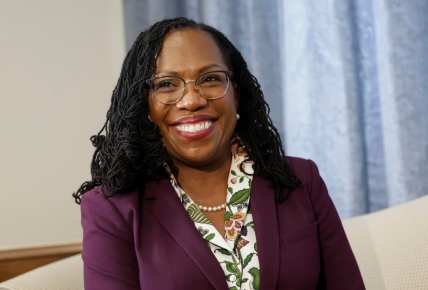Loading the player…
As President Joe Biden and Vice President Kamala Harris work to advance diversity and equity, legal battles led by conservative groups pose major threats to their administration’s agenda.
The most recent example came Saturday in Atlanta, where the 11th U.S. Circuit Court of Appeals temporarily blocked a grant program for Black female-owned businesses issued by the Fearless Fund, a venture capital firm co-founded by Black women.
The three-judge panel ruled 2-1 in favor of the American Alliance for Equal Rights. The majority opinion, issued by judges appointed by former President Donald Trump, called the Fearless Fund’s grant “racially exclusionary.”
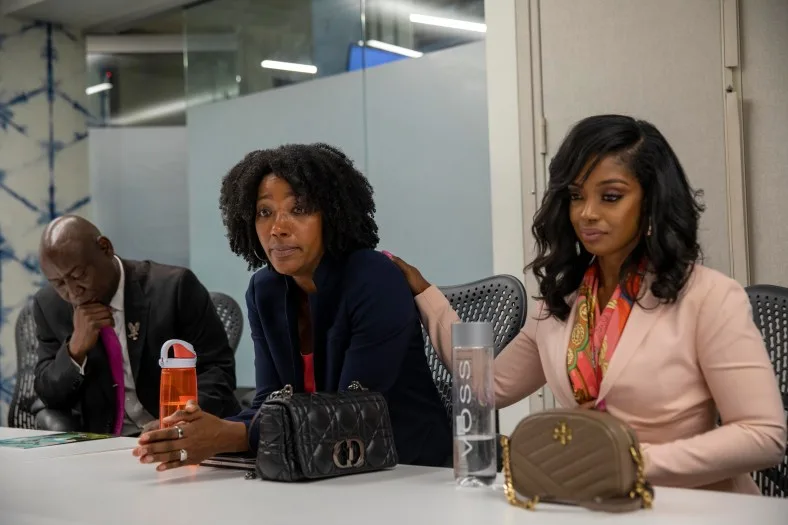
In response, legal counsel for the Fearless Fund made clear they will seek “further appellate review,” which could mean the case going all the way to the Supreme Court.
For legal experts and civil rights advocates closely watching, the Fearless Fund lawsuit feels very familiar. Edward Blum, the conservative litigant who led the lawsuit, was also behind the Supreme Court case that struck down affirmative action this year.
The ruling, which eliminated race-conscious admissions criteria, led to the Biden-Harris administration doing desperate patchwork to prevent a major decline in the enrollment of Black and brown students on college campuses.
Getting the Fearless Fund case to the high court is seen as part of Blum’s strategy to expand his successful anti-Black agenda in higher education to the business sector.
“We’re going to see Blum continue to forum shop to try to find judges who will be hospitable to an argument to reverse the use of race in a variety of fields,” political strategist Alaina Beverly told theGrio. “We should be prepared for the intensity of these cases to continue because it has been like a long-term strategy.”
The Rev. Al Sharpton, who appeared in court with the Fearless Fund co-founders on Saturday, told theGrio that the “only conclusion” to form from the lawsuit is that the right-wing movement fueled by Blum and backed by sympathetic judges is that “they don’t want Blacks to exist, lifting themselves up or getting social programs.”
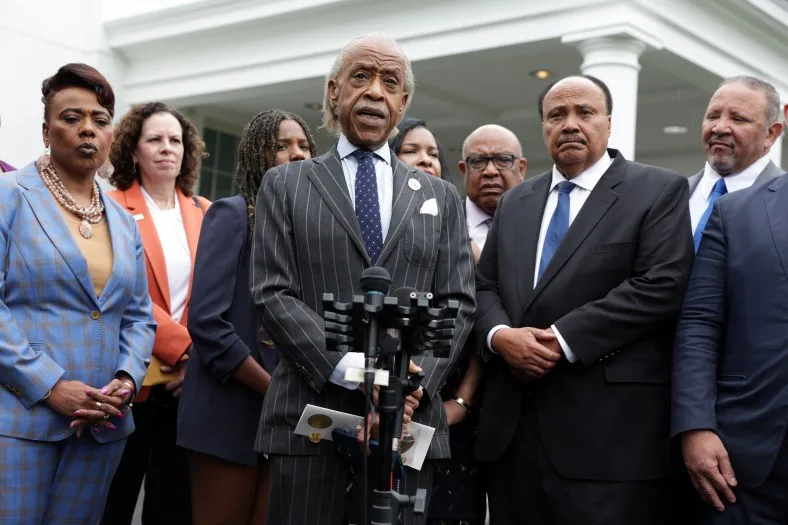
Sharpton said the legal battle is both a political and civil rights issue, telling theGrio he and the National Action Network are calling on the U.S. Department of Justice to get involved, either by writing a letter in support of the Fearless Fund’s appeal or going a step further by investigating whether the lawsuit violates the civil rights of the founders.
Beverly, who served as White House associate director of public affairs for President Barack Obama, cast doubt on the lawsuit against Fearless Fund, which claims the firm violated the Civil Rights Act of 1866. The plaintiff cites a clause in the nation’s first-ever civil rights act prohibiting racial discrimination in contracts.
“To say that now the remedial acts these women are creating in order to make sure that Black women have opportunity is racist turns the very purpose and history of that protection on its head,” Beverly told theGrio.
She noted that Judge Charles R. Wilson, a Black judge nominated by President Bill Clinton, made that very argument in his dissent of the 11th Circuit’s ruling.
Small business adviser Natalie Madeira Cofield, who previously worked for the Biden-Harris administration, told theGrio, “What we are seeing today is one of the most aggressive campaigns to challenge programs, policies, and initiatives established to provide a pathway to equity in business and entrepreneurship since the establishment of these programs in 1964.”
Cofield, who served as assistant administrator for the Small Business Administration’s Office of Women’s Business Ownership, noted that Black women are the fastest-growing entrepreneurial segment in the country, representing more than 60% of all Black businesses and serving as the primary breadwinners of 80% of Black American households.
“Challenges to these economic programs have considerable implications for both gender and racial economic parity for generations to come,” she told theGrio.
Despite their fast-growing presence, Black women-owned businesses are woefully underfunded.
“The reason they’re giving these $20,000 grants to Black women businesses – under $3 million in revenue – is to make a dent in the fact that they haven’t received those in the past,” U.S. Del. Stacey Plaskett, D-Virgin Islands, told theGrio.
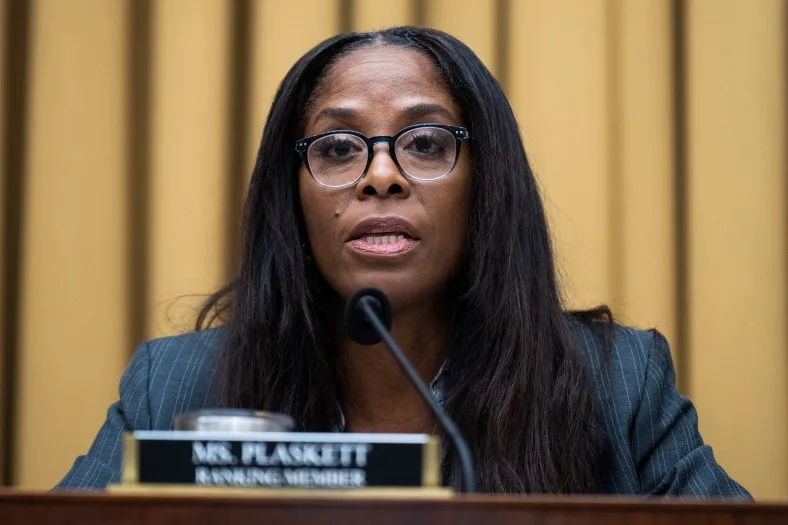
Plaskett, who last year co-founded the Congressional Caucus on Black Innovation, said Black women’s receiving of such grants “helps society at large,” which she said is backed by studies from McKinsey & Company, the Boston Consulting Group, and others.
“We’re losing jobs and business opportunities…when Black innovators, Black entrepreneurs, and Black businesses don’t receive the equitable share of funding in venture capital funding,” said the congresswoman.
Polling shows that the public also embraces grants like the one distributed by the Fearless Fund.
In an op-ed commemorating the March on Washington, Biden cited an August poll from the Black Economic Alliance that found that 78% of adults – across race, age, and ideological lines – support businesses taking steps to ensure companies reflect the diversity of the country.
The poll also found that 82% of those surveyed agree that corporate America should reflect the diversity of the U.S. population.
In his Aug. 27 op-ed, Biden wrote that despite attacks on diversity, his administration would “keep pushing to create a workforce that reflects America.”
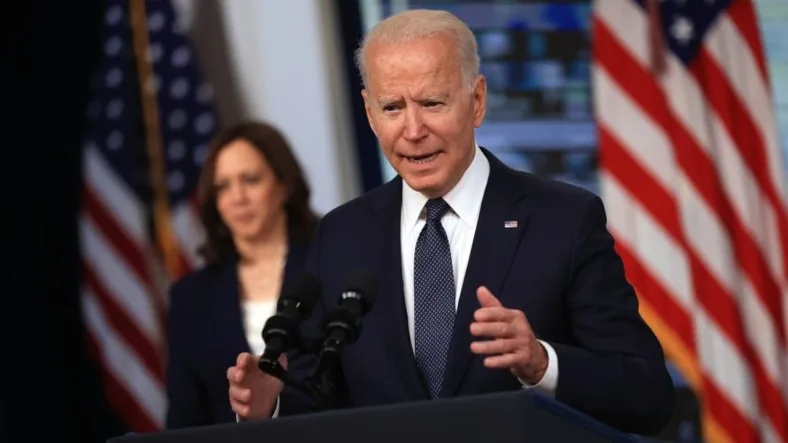
In addition to signing an executive order to advance racial equity across the federal government, the Biden-Harris administration has invested billions of dollars into Minority Depository Institutions (MDIs) and Community Development Financial Institutions (CDFIs), which invest in Black and minority-owned businesses.
Deputy Secretary of the Treasury Wally Adeyemo told theGrio that the administration is continuing to work to ensure those federal dollars get into the hands of Black-owned businesses. The next step is using capital provided by the government to attract dollars from the private sector to make those investments more sustainable.
A more long-term strategy for advancing diversity in America has been Biden’s appointment of Black female judges to the federal bench. To date, Biden has nominated a record 11 Black women to the federal bench.
“Joe Biden has done more to appoint diverse judges to the appellate courts and, ultimately, in the pipeline for the Supreme Court,” said Beverly, the former Obama staffer.
The societal and judicial benefit of installing more diverse, culturally competent judges to the federal bench is also reflected in the Supreme Court’s lone Black woman, Justice Ketanji Brown Jackson, noted Beverly.
Beverly recalled the Biden-nominated justice in her dissent of the high court’s ruling against affirmative action, pointing out how the government “created structural obstacles to the advancement of communities of color, and particularly to the African-American community, to securing economic opportunity.”
She added, “This puts a fine point on the importance of diversity on the bench and the importance of perspective on the bench.”
Ultimately, the legal setback for the Fearless Fund demonstrates that “elections have consequences,” said Plaskett, referring to the judges appointed by Trump.
The former Trump impeachment manager said she is concerned about the case’s outcome if it goes to the Supreme Court.
“We’ve seen in recent cases how the Supreme Court is really making decisions that are so far outside of the sphere of the judiciary and more into politics,” she told theGrio.
“I think we should be concerned, but I think we need to keep continuing on, keep doing what we’re doing, and I think that, eventually, justice is going to prevail.”
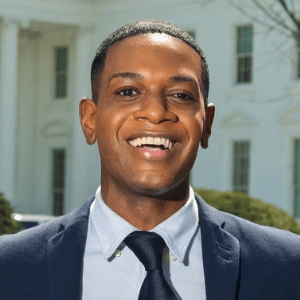
Gerren Keith Gaynor is a White House Correspondent and the Managing Editor of Politics at theGrio. He is based in Washington, D.C.
TheGrio is FREE on your TV via Apple TV, Amazon Fire, Roku, and Android TV. Please download theGrio mobile apps today!



